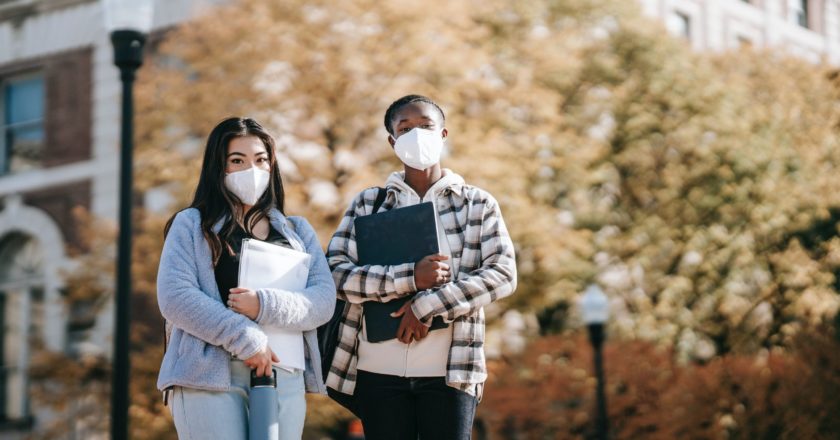n-campus classes are back in session, and universities and colleges across America are taking steps to create a safe and healthy environment for their students. Lately there has been a rise in the use of new-tech devices and innovations to prevent the spread of the Covid-19 virus in campuses. New technology can help schools provide students with a healthy environment and enable them to have proper hygiene. This is how technology is helping to keep US campuses safe and germ-free.
Disinfection Technology
Germs can be found everywhere on campus, from the water fountain to high-touch areas such as light switches and door knobs. Research shows that college campuses have higher levels of bacteria than other places in a city. This is why schools are starting to invest in new disinfection UVC tech devices to keep campuses clean and germ-free. Having a properly sanitized campus not only improves an institution’s reputation, but it also increases student productivity while keeping viruses at bay.
Produced by high voltage discharge in a low-pressure mercury arc lamp, UV-C light has been used in disinfection and food preservation for over 100 years. UV-C light is almost entirely absorbed by organic material, the only exception being carbon black pigments that absorb approximately half of it, making it an effective way to disinfect fabrics, books, and even wooden seats and desks. College campuses such as East Central College have been implementing best prevention practices, including UV-C technology, in adherence to CDC recommendations.
Occupancy Monitoring
Motion, temperature, and lighting sensors can all be used to monitor and record the movement of people in an enclosed space. Knowing when an area is fully occupied or not is essential for things like social distancing and preventing accidents. Tech solutions such as Safecount, Pressac, and Safespace occupancy monitoring platforms have seen rapid adoption in institutions, such as college campuses, and they’re being utilized to count people discreetly to prevent crowding and maintain social distancing.
Hydration apps
Keeping hydrated is essential to stay healthy, and it also helps to keep one focused and alert. This is why there has been an uptick in the sales of reusable water bottles, as well as a marked increase in downloads of hydration apps. Some of these apps include Hydro Coach, WaterMinder, and Aqualert, and they’re used to measure health indicators to ensure that an individual is not dehydrated. Students can get instant information on their hydration levels via an app on their smartphone, and they are reminded to drink more fluids throughout the day.
Wearables to keep track of oxygen levels
Oximeters are medical devices that are starting to take over college campuses They determine the level of oxygen in someone’s blood by sending an electric current through their bloodstream. Pulse Oximeters also allow users to observe the heart rate and blood pressure of other people. An example of massive adoption of this device is Delhi Campus. In July, the institution procured 500 pulse oximeters as part of the measures to stem the third wave of the coronavirus.
From UVC cleaning devices to occupancy monitoring and oxygen testing devices, campus colleges seem to have switched up their gears for the safety and health of the students and instructors. These innovations drive improved hygiene and empower students and administrators to stay ahead of their collective and individual health needs. In the future, experts predict more innovation and increased adoption of these and other health and wellness gadgets.
SEE ALSO: Incoming Freshmen: Why You Should Live with a Stranger?





